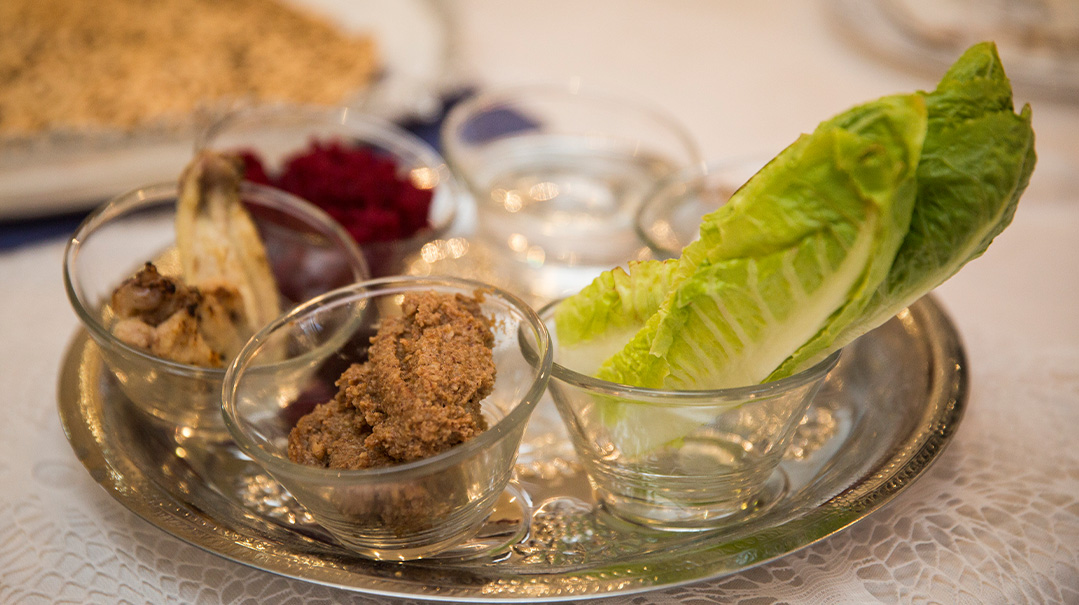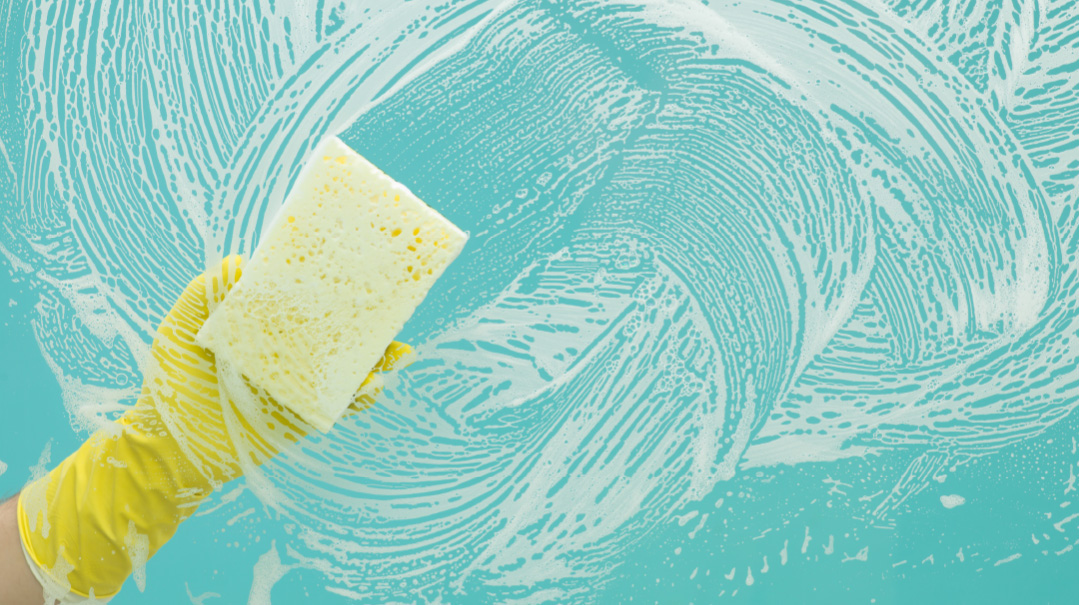Honest to Goodness
| April 29, 2020She’d ripped away the illusion that I was an innocent victim of fate, that some people were popular and others weren’t

W
hen my mother was expecting me, she’d been prescribed a drug not indicated for pregnancy. It caused all my baby teeth to grow in a grayish brown. From a very young age, before children are usually subject to social pressure, I was teased and excluded.
Throughout elementary school, even as my baby teeth fell out and were replaced by normal white teeth, I couldn’t really fit in. I assumed that even though I now looked like every other girl when I opened my mouth, the kids had already labeled me an outcast and there was nothing I could do to escape it.
My mother, herself socially awkward, had grown up without friends and tried to teach me I had value in Hashem’s EEyes and shouldn’t care what anyone else thought. As hard as I tried not to be bothered — and to put on a show that I couldn’t care less what anyone thought of me — I desperately wanted to be accepted.
By eighth grade, I had a few girls who occasionally included me, and I could join a conversation without being rebuffed, but for the most part I usually found myself outside the social circle. That made me and Michal, one of the wealthiest and most popular girls in our class, a most unlikely pair. But every other girl in our class had a ride home immediately after school, while we were the only two girls who waited around for our parents to finish work.
After the final bell rang, for the next 45 minutes, it was just the two of us sitting on opposite ledges outside the double doors at the back of the school. At first, I’d read, do homework, or pretend to be busy with anything, rather than dare talk to Michal. But it was inevitable, with only the two of us there day after day, that we’d eventually strike up a conversation of sorts.
I don’t think we had any soul-beaarring discussions, but we did become comfortable and would pass the time talking about how unfair the math test was, and how much better the Chanukah chagigah would be if we could get the school to agree to live music.
Our little friendship never carried over into the remainder of the school day. I have no recollection of wanting it to, or feeling bad that it didn’t. We were from very different worlds, and not just because she was wealthy and my family could barely make ends meet. I was from a totally Orthodox family, while hers was traditional. She was head of dance and liked math. I had two left feet and loved literature. We had only enough common ground to pass the time until our rides came — and that was fine for both of us.
I was therefore utterly unprepared for the day when, as soon as we were alone on our regular perches, she on the ledge on the right of the double doors, and me on the left one, she rummaged through her knapsack and pulled out a sheet of paper ripped from her loose leaf, saying “I have a surprise for you.” I wrinkled my brow and raised my eyes, skepticism all over my face. Our friendship was a chitchatty one, not a give-each-other-gifts one.
“No, really. Listen to me. This could change your life. I was thinking to myself that you’re a really nice girl. Why don’t you have any friends?” Despite the unintended insult, there was a note of sincerity in Michal’s voice. “So I watched you today,” she continued, “and I made a list of all the weird stuff you do — so you could stop.”
I barked out a laugh and rolled my eyes as far back as I could in a desperate attempt to keep the tears from escaping. “Weird stuff I do?” I said in the most sarcastic tone I could manage. “I don’t do weird stuff.”
I’m pretty sure Michal had no idea how hard I was fighting back tears. She just barreled on and read down her list: how I’d rubbed my pencil eraser all over my skirt, stared off into space, intensely concentrated on doing she didn’t-even-know-what to the corner of my desk, and in math class I’d held my paper against my chest and rubbed it like it was a baby or something.
Even now, more than 30 years later, I feel myself shaking as I recall her words. I used all my strength not to show how hurt I was. “I didn’t hold my paper against my chest, and I for sure didn’t rub it,” I interrupted, again making my voice as snide as I could.
“Look, Batya, I’m trying to help you. I have no reason to make this stuff up. You don’t have to listen to me, but I think if you do, you could be really popular.” Blessedly, her father pulled up just then, sparing me from the witty retort I couldn’t come up with.
Over the next couple of days, Michal went out of her way to be friendly to me in school. Not enough so anyone else would notice, but enough so that I’d know she really had meant well. I couldn’t help but feel super awkward and self-conscious. I caught myself picking at the skin around my lips and quickly looked around to see if anyone had noticed. Another time I started telling a few girls about my little brother and his lisp ⸺ and I actually got a few smiles as I imitated the cute things he mispronounced. But when I started to go into the details about why and how my parents choose his speech therapist, and why we go twice a week now, I noticed no one was listening and stopped talking mid-sentence.
I felt a rush of anger at Michal. Why did she have to make me feel so dumb? At the same time, I realized that all Michal had done was make me notice other people’s reactions. I tried to forget the whole incident, but a few crucial points managed to penetrate. Most importantly, she’d ripped away the illusion that I was an innocent victim of fate, that some people were popular and others weren’t. I had to face the fact that maybe I was actually doing things that turned people off.
I started to observe myself, so Michal would have no more fodder for her lists. But I wasn’t a hundred percent sure what people would think was weird. That forced me to start watching other people. When everyone was gathering around Shani, listening to her with rapt attention, I had to control myself not to pull out a notebook and take notes. I noticed that instead of barreling ahead with her narrative the way I tended to, she paused every few words to see who was listening, who looked interested in what she had to say.
I watched how Tami added to what Shani had said. Tami didn’t look at all intimidated to add her own opinion to the conversation. I’d assumed Shani would be annoyed that Tami had changed the direction of the conversation. But instead Shani’s face became more animated, and she gave Tami feedback about what she’d just said.
Observing other people became invaluable. I could teach myself social nuances by seeing what socially successful people did that got approval. I discovered something shocking. Popularity wasn’t only about having the right clothes and charisma. It was also about being confident in yourself, listening to other people, and making them feel good.
Slowly, I started to practice my newfound skills. Watching to see if people were interested in what I was saying wasn’t that hard. After Michal had accosted me that afternoon, I couldn’t not notice people’s reactions to me. Sometimes I felt frustrated when I had something I wanted to share, and knew that no one would want to listen, or when I did try to start a conversation and saw that a few girls were being polite by facing me as I spoke, but weren’t really listening to what I was saying.
I thought the solar system and outer space were unbelievably fascinating. Why didn’t anyone else? Still, I saved those topics for when I got home to discuss with my father. It made me feel a little weird to be interested in something that no one else was, but I was slowly realizing there were plenty of other topics I could discuss with the girls at school.
One day Debbie pulled a chocolate bar out of her lunch bag. “Who wants to help me finish this chocolate bar so I don’t become Miss Pimple Face?”
As girls gathered around while Debbie broke off squares of candy, various comments flew, and I added my voice to the melee. “I can’t eat chocolate. I break out in a rash all over my body. Then I have to soak in a hot bath every….”
Mid-sentence, I noticed Michal standing between me and the other group of girls with her hands on her throat and her tongue sticking out, making a gagging face. Oh, she’s trying to tell me it’s gross to talk about this, I thought. It had been months since our original traumatic conversation, and I was almost feeling comfortable with myself again. Why did she have to ruin it?
To add insult to injury, she leaned in and whispered in my ear, “Everyone knows you’re allergic to chocolate. Everyone knows you break out in a rash. You do not, I repeat, do not have to mention it every. single. time. someone. mentions. chocolate.”
I was about to run to the bathroom and cry when she leaned in again and, still whispering, added, “Is that what you want to put on your page in the yearbook?! Batya who’s allergic to chocolate? Or would you rather it say something like, ‘Batya, a really good friend, who always makes you laugh’?”
Well, that last line really made me feel better, or better enough that I no longer had to run to the bathroom to cry. But who did Michal think she was? I was going to start making her a nasty little list of all the things I thought she did wrong.
But before I could spend too long resenting Michal, Meira came up to me waving a stack of papers in my face. “Batya, we need your help with the Purim shpiel. It’s not funny enough. We got excused for the next two periods. Meet us in room 413, okay?”
I’d always been funny. I guess one way of managing having no friends is by being the class clown. It’s easier to laugh at yourself before other people do, easier to tolerate being made fun of if you pretend that’s how you see yourself.
But I’d never been asked to use my humor in a constructive way before. I’d definitely never been invited to join a group on my own merits, not as a charity case. I slowly got up and left the lunchroom as nonchalantly as possible, so as not to appear over eager, even though every bone in my body was itching to race after Meira.
I’m not sure exactly when it happened. But by the time the first day of ninth grade rolled around, instead of dreading it like I had every other year, I was excited. Instead of worrying who would sit next to me, I wondered which of my friends it would be. I wasn’t dreading long afternoons alone, but looking forward to all the fun I would have. My parents decided it was cheaper and easier to get a second phone line than to constantly try to get me off the phone with my friends. No one was more surprised than I was that I’d actually become popular.
At the time, I made no connection between Michal’s words and the gradual changes in myself. I thought Michal was way too confident and comfortable with herself to be judging me. I thought she was a tad obnoxious to air her views about me, or to even think them.
Today, I’m blown away by the sensitivity of a 13-year-old: to actually notice someone outside of herself who should be well liked but wasn’t, and to care enough to figure out why, to observe, to make that list…
Michal, wherever you are today, thank you.
(Originally featured in Family First, Issue 690)
Oops! We could not locate your form.











